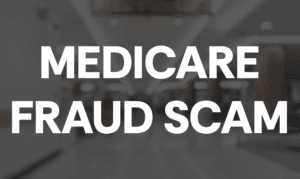By Robert Rosser
Special to The Citizen
Most of us have never heard this term, but experience it nearly it every day while driving to work. Think back a moment when you were just a child and your parent let you sit in their lap and steer the car. You have no appreciation for the pedals on the floor, the gear shifter or turn signals, but as far as you knew, you were driving the car; the state of blissful unconscious incompetence. Fast forward a few years to the moment you were taking the road test for your driver’s license. With a nervous grip on the wheel and the examiner in the passenger seat, you suddenly become aware that you are consciously incompetent. After many years of experience you now get in the car, and without really thinking about it, you drive yourself to work. Upon arrival, you may even wonder, “How did I get here?” Of course, you know you drove, but the activities between point A and B is merely a blur. You reached the point of unconscious competency!
So it is with practicing a medical discipline. Patients present clinical presentations and without hesitation you intuitively know what to prescribe and how to treat. This is a good example of unconscious competency. Do you have that same level of unconscious competence when it comes to the business operation of your practice?
While unconscious competence is desired in all business functions, there is no other place more important than with customer service. Most medical providers measure their customer service based on their professional training, whereas most patients use many more metrics to measure whether their customer service experience was good or bad.
Your patient’s yardstick for measuring customer service is virtually the same yardstick they use when they visit their local retailer, restaurant, or coffee shop. In short, if they experience poor customer service, they are likely to tell everyone they know and probably not shop their again. The same holds true for medical practices. Becoming unconsciously competent with customer service is beneficial for your patients, your staff and your bottom line performance.
Need proof that your office may be unconsciously incompetent regarding customer service? Patient satisfaction surveys conducted over many years with hundreds of practices reveal that patients may like their doctor, but had many dislikes about the overall experience. Perhaps as no surprise, patients rate “wait time” as their number one complaint. Impersonal staff, difficulty in getting an appointment, and an inattentive doctor rate poorly in the survey as well. Yet, most practices surveyed believe they were providing excellence in customer service. As these practices reviewed their survey results, they immediately experienced conscious incompetence!
Becoming unconsciously competent is not out of reach. It merely requires that we first move from unconsciously incompetent and become consciously incompetent. Making conscious improvements in your customer service today will become second nature tomorrow. Soon, you and your staff will become unconsciously competent when it comes to providing excellence in customer service.
Rosser is the owner and senior consultant at Primoro, Inc. He is a featured speaker for a variety medical societies and organizations. He writes a popular medical practice management blog at www.primoro.blogspot.com.












Leave a Comment
You must be logged in to post a comment.